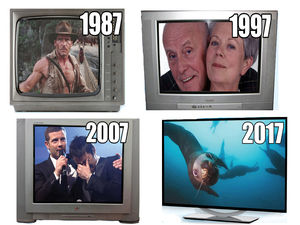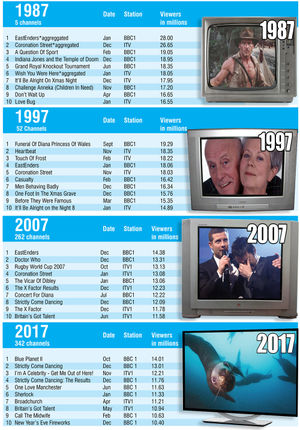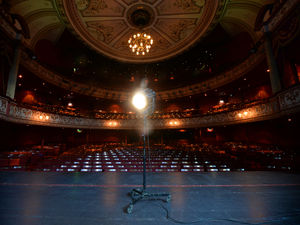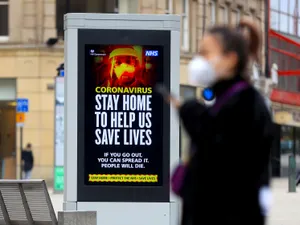BBC? ITV? Netflix? Amazon? TV times are changing
How do you watch TV? Chances are that it's changing, as the likes of the BBC and ITV face strong competition from internet challengers Netflix and Amazon. Mark Andrews investigates.

Jeremy Clarkson has never been a man to mince his words. And when he left the BBC after 27 years in 2015, moving to pay-per-view broadcaster Amazon, he didn't hold back:
"I feel like I've climbed out of a biplane and into a spaceship," he said.
Could YOU live without a TV licence? See two contrasting views below
Of course Clarkson's departure from the BBC was not entirely voluntary, and in the words of his old boss, 'he is not a man given to considered opinion'.
But behind the characteristic trademark bravado, did the former Shropshire Star journalist have a point about the future of the broadcasting industry?

When BBC director-general Tony Hall addressed MPs last week, he spoke of the threat that the emerging breed of internet-based broadcasters such as Amazon and Netflix posed to traditional outlets such as the BBC and ITV.
While in the past the mainstream broadcasters could earn a steady income selling their programmes, he observed that these these days could be numbered as the new entrants increasingly produced their own material.
Lord Hall said, if they were to remain relevant, the likes of BBC and ITV would need to pool resources and work collaboratively.
"Whereas two or three years ago you could sell a great deal to Netflix and Amazon, they are investing less in us broadcasters, and we're going to have to go our way with people who think like us," he told MPs.
That viewing habits are changing is not in question. While MPs were quizzing Lord Hall about whether the BBC would ensure over-75s continued to receive free TV licences in years to come, the real challenge is the growing number of people in their 20s and 30s who have never actually held a licence.
Lord Hall is suggesting the BBC and ITV could join forces to form their own 'British Netflix' to take on the new competition from Silicon Valley. ITV chief executive Dame Carolyn McCall is thought to be sympathetic to the idea, although such a bold move is bound to be fraught with difficulty.

Bianca Fox, a senior lecturer in media and broadcasting at Wolverhampton University, says the established broadcasters will need to change the way they work if they are to have a future.
"Young people almost never use a TV, many don't even own one," she says.
"Why would they? Everything they want to watch can be easily accessed by YouTube."
She says that while a tie-up between the BBC and ITV to produce a commercial streaming service could work, it would pose questions regarding their public-service remit. For example, if they were they to go head-to-head commercially with Amazon and Netflix, how would the BBC justify the licence fee?
There would also be questions about whether the civil-service like BBC and the advertising-funded ITV would make good bedfellows, let alone how they would compete in a cut-throat global market.
It is not just BBC and ITV which are feeling the heat, either. The newer, satellite broadcasters such as Sky also face intense competition.
Fragmented
For example, Netflix has more than 9.1 million subscribers in Britain, and Amazon Video is available in five million homes. Between them, they are thought to have more subscribers than all the satellite or cable pay-to-view services combined.
While Amazon and Netflix's combined reach of just over 14 million households is still some way behind the 25.8 million TV licence holders in the UK, the gap is closing.
Of course the arrival of the streaming services is just one example of how our viewing habits have become more fragmented over the past 40 years or so. In the 1970s, considered by many to be the golden age of television, it was not unusual for top-rated programmes such as The Likely Lads, Crossroads, or Morecambe & Wise to pull in upwards of 20 million viewers.
But at that time there were only three channels available, so it was not surprising that hit programmes could command huge audiences.
Channel 4 and its Welsh sister S4C arrived in November 1982, but the picture was still largely the same. By 1987, when there were five channels available, EastEnders was the most watched programme, with 28 million tuning in to its New Year's Day edition, with the Christmas Day episode of Coronation Street – which marked the departure of favourite character Hilda Ogden – pulling in 26.65 million viewers.
Perhaps more tellingly, the travel programme Wish You Were Here?, in sixth place, was watched by 18.05 million viewers, and the forgettable sitcom Don't Wait Up came ninth with 16.65 million watching.





